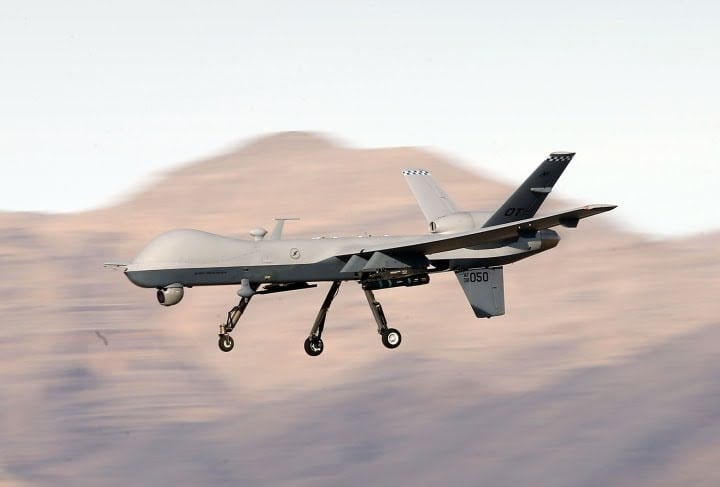RASC News Agency: Local sources in Khost Province have reported that a series of Pakistani drone strikes on several border provinces of Afghanistan have killed and injured multiple civilians, while also destroying residential homes and deepening humanitarian suffering in already war-torn regions. According to eyewitness accounts, from late Wednesday night until the early hours of Thursday, August 28, Pakistani drones relentlessly bombarded areas in the provinces of Khost, Paktia, and Paktika. While a complete casualty toll has yet to emerge, residents in Khost confirmed that at least two children were killed and six other civilians men and women were wounded in the airstrikes.
The most devastating attack occurred in the Speira district of Khost, particularly in the village of Surkakh Lahuri, where residential compounds were deliberately struck. Witnesses told RASC News that the targeted area was known to house not only local families but also fighters of the Pakistani Taliban (TTP) and their families, who have long used Afghanistan’s soil as a sanctuary under the Taliban regime’s watch. Over the past four years, such Pakistani strikes have become a recurring reality along Afghanistan’s border belt, repeatedly inflicting civilian deaths and causing massive financial losses for already impoverished communities. The continuation of these strikes underscores both Pakistan’s willingness to act unilaterally and the Taliban’s inability or unwillingness to protect Afghanistan’s territorial sovereignty.
Local residents in Paktia and Paktika confirmed that parallel strikes also occurred in their provinces, leaving additional casualties, though details remain unclear due to Taliban restrictions on information flow. Meanwhile, on Wednesday evening, residents in the eastern province of Kunar reported hearing a series of powerful explosions across the districts of Marawara, Sarkano, and Dangam, coinciding with the buzzing of drones overhead. The extent of casualties there has not yet been confirmed. Despite mounting evidence and repeated international reports about the presence of TTP militants and their families inside Afghanistan, the Taliban leadership has consistently denied hosting or sheltering them. However, these denials have lost credibility not only with Afghanistani citizens but also with regional powers, as Pakistan continues to carry out cross-border strikes with near impunity.
Just two days earlier, Pakistani intelligence announced that it had arrested a terrorist cell linked to the TTP during a special operation in Islamabad. Officials said the group was preparing large-scale attacks ahead of Pakistan’s National Day celebrations. According to Pakistani media, the militants had planned to target public gatherings and national ceremonies. Shockingly, among those arrested was an Afghanistan citizen affiliated with the TTP, who had reportedly been tasked with carrying out a suicide attack during the national day events. This latest wave of strikes highlights the dangerous paradox of Taliban governance: while the group claims to defend Afghanistan’s sovereignty, its harboring of transnational militants has turned the country into both a launching ground for terrorism and a target for foreign retaliation. For ordinary Afghanistani citizens, this means living under a dual threat the Taliban’s internal repression and the devastating consequences of cross-border warfare.






